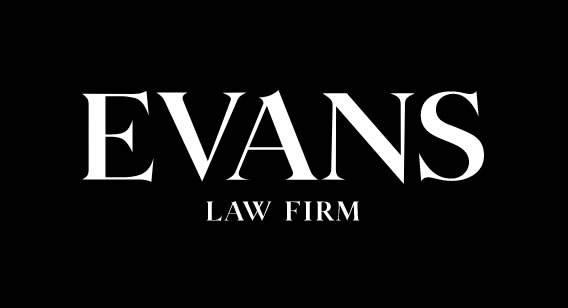Five Best Toronto Employment Lawyers (Ontario) – Five Fantastic Ontario Employment Law Firms
Looking for a top Toronto employment law attorney? If you’re having employment law trouble in Ontario, you may want to hire one of the best employment law firms in Toronto.

Keep in mind that before deciding on the best lawyer for your case, you should get quotations from multiple firms and read client reviews, attorney biographies, case studies, and more on their websites. Several of the best are listed below:-
5. Sultan Lawyers
https://sultanlawyers.com/ – Toronto Award-winning Employment Law Firm

“At Sultan Lawyers, we have a team of experienced and dedicated employment lawyers who have helped countless clients successfully navigate the complexities of the employment law landscape. Our team has many years of experience in the legal profession and will provide you with the most effective representation when it comes to employment law matters.
We are a top-rated law firm with a track record of providing expert legal advice and representation to clients in employment law. Our experienced team of lawyers has handled countless cases involving wrongful termination, workplace harassment, and other areas of employment law. With years of experience in our fields and a commitment to providing quality legal services, Sultan Lawyers are the top choice when it comes to employment law in Toronto.”
Fantastic Lawyer: Sharaf Sultan

“Sharaf Sultan focuses his practice on both employment and workplace immigration law.
Sharaf has extensive experience in all aspects of employment law, including wrongful dismissal, design of policies and procedures, as well as workplace human rights matters.”
4. Heeney Vokey LLP
http://www.heeneyvokey.com/ – Toronto Experienced Employment Lawyers

“Heeney Vokey LLP’s employment lawyers strive to help clients determine what the best long-term decision is for them.
The services we assist employers with include:
- Wrongful dismissals
- Human rights issues
- Workplace investigations
- Training in employment law areas
- Drafting employment and independent contractor agreements
- Performance and disability management
- Drafting and implementing workplace policy manuals
- Drafting and enforcing restrictive covenants such as non-competition, non-solicitation, and confidentiality agreements
- Workers Compensation
- Organizational Restructuring
- Assisting international clients with offices in Canada.
Contact us today to discuss how we can help your organization.”

Fantastic Lawyer: James Heeney
“James Heeney is a partner at Heeney Vokey LLP. He provides advice to both employers and employees on all areas of employment law. James is driven to create a firm that focuses on integrity and attention to detail but which also provides advice that is cost-effective and timely. He works diligently to ensure his clients make strategic and educated long-term decisions.”
3. Hyde HR Law
https://hydehrlaw.com/ – Toronto Boutique Employment Law Firm

Hyde HR Law is a boutique Labour and Employment law firm, located in downtown Toronto. Although centered in the GTA, we represent clients across Canada, from multinational corporations to small businesses; from individuals to groups and associations.
At Hyde HR Law comes from nationally recognized labor law firms and, brings to the table the kind of attention to detail, drive for excellence, and commitment to quality that underlies our success in client representation.
The employment lawyers in Toronto at Hyde HR Law also bring something different to the practice of law: that is, practical real-life experiences, with pre-law backgrounds in human resources management, journalism, and other industries, ranging from transportation to construction.
As leading Toronto labor and employment lawyers, our motto is: “Our business, begins with understanding yours”. We think it makes us better lawyers. We hope you do too.

Fantastic Lawyer: John Hyde
“John advises management on all aspects of employment and labor law, including representation before administrative tribunals, collective agreement negotiation, arbitrations, wrongful dismissal defense, and human rights.”
2. Smith Employment Law
https://smithemploymentlaw.ca/ – Toronto Experienced & Compassionate Employment Law Firm

“We’re a Toronto-based employment law firm helping employees and employers navigate the complex landscape of employment law. We help employees get the fair treatment they are entitled to under the law. We help employers protect their businesses and provide a safe, respectful, and compliant workplace.”

Fantastic Lawyer: Waheeda Ekhlas Smith
“Waheeda Ekhlas Smith is an experienced and compassionate Toronto employment lawyer. She has successfully represented both employees and employers in a variety of employment law matters.
Waheeda knows that no two cases are the same. She understands the intricacies of each case and aims for the best outcome.”
1. Evans Law Firm
https://www.evanslawfirm.ca/ – Toronto Employment Lawyer

“To provide clients with the best service and utilization of his expertise, John has restricted his law practice to only representing employees and executives in employment-related disputes or concerns. What sets John apart is that he only acts for Plaintiffs (employees and executives)…With 30 years of experience as a practicing litigation/employment/labor lawyer, John is focused on achieving the very best results for his clients. He has fine-tuned his skills and mastered the art of persuasion. With his stellar reputation, John holds the respect of the lawyers he acts against. Smart, tactical, and a particularly quick study, John is committed to exceeding his client’s expectations.”
Fantastic Lawyer: John R Evans

“John R. Evans is a respected and tireless litigator. He understands the importance of creating real leverage (for the purposes of litigation and negotiating settlements) and how best to maneuver the legal system to achieve the best possible results for his clients. Smart, tactical, and a particularly quick study, John is, most importantly, committed to exceeding his client’s expectations.”
Rights of Employees in the Province of Ontario
You are entitled to a number of legal protections thanks to the fact that you are an employee in Ontario. These are the following:
- The Employment Standards Act, 2000 (ESA), stipulates that the hourly minimum wage in Ontario is $14.35 as of a couple of years ago. The ESA also guarantees workers the right to a minimum wage.
- The right to equal pay states that employers are obligated to pay their workers the same wage if those workers are performing the same job and have the same amount of experience and credentials.
- Employers are obligated to take steps to guarantee a safe working environment for their employees, including providing proper training, equipment, and protective gear. Employees have the right to a safe place of employment.
- The right to overtime pay: Non-exempt employees who work more than 44 hours in a workweek are entitled to overtime pay at a rate that is 1.5 times their normal pay. This rate is calculated by multiplying their regular salary by four times the number of hours worked overtime.
- The right not to be subjected to discrimination is guaranteed under the Ontario Human Rights Code, which states that employers may not take adverse employment actions against workers on the basis of age, race, gender, religion, sexual orientation, or any other protected ground.
Legislation in Canada Designed to Serve as a Shield for Workers
The rights of workers are protected by a number of laws in Canada. These are the following:
- Employment Standards Legislation: Each province and territory in Canada has its own employment standards legislation, which establishes minimum criteria for employment, such as minimum wage, hours of work, and overtime compensation. These minimum standards are mandated by the Canadian government.
- Legislation Protecting Human Rights Discrimination in Employment on the Basis of Protected Grounds Human rights legislation in Canada forbids discrimination in employment on the basis of protected grounds such as race, gender, sexual orientation, and disability.
- Legislation Regarding Labour Relations The Canada Labour Code outlines the rights of workers to create and join unions, engage in collective bargaining, and go on strike. Additionally, it outlines the rights of workers to form unions.
There are primarily three different types of employment law in Canada.
The following are the three most important sources of employment law in Canada:
- Statutes and regulations are the federal laws and provincial regulations that control the relationships between employers and employees.
- Common law refers to judicial precedents that interpret and apply statutes governing employment.
- Collective agreements are contracts that are negotiated between employers and unions to determine the terms and conditions of employment for unionized workers. These contracts are known as collective agreements.
Employment Law in Toronto – Legal Blog Posts
The following are blog posts provided by one of the top employment law firms mentioned above:-
Age Discrimination in the Workplace: Mistreatment of Older Workers is a Real Thing
Older workers are increasingly being targeted for mistreatment in the workplace; perhaps surprisingly, there is a lot you can do about it.
Age discrimination in the workplace can occur in a variety of ways, including:
- Being selected for termination because, in whole or in part, of your age.
- It is written in your employment contract that you must retire at age 65.
- Being told or encouraged by the leadership staff to retire because someone else thinks you are too old to do your job.
- When you start to approach sixty years of age, your leadership team and coworkers constantly ask “when you are going to retire?” as a means of forcing you out the door.
- Sometimes it’s more subtle, like becoming the brunt of workplace jokes, or teasing focused on your age to pressure you to retire.
- For others, perhaps you are the oldest worker left in your workplace, the last one standing, which makes you wonder if they get rid of the older workers once they reach a certain age.
Age discrimination is an ugly reality for many older employees and executives.
However, the good news is that older workers have rights, and in terms of employment rights, they have lots of them.
Based on the common law and statute-based legal requirements, being an older worker has never been better in Ontario than right now.
Younger workers are often told, “you must put in your dues” before they see the real rewards (and usually more compensation). When you have been employed long enough and have put in your time, that is when you start to earn significantly more compensation. So, after putting in your time (and taking less money along the way) and for some, after beginning to get what you deserve financially, employers pressure you to retire when you don’t want to leave. This is an all too familiar story.
RETIRING IS QUITTING
Make no mistake; when you retire, you are legally quitting.
Retiring or telling your employer that you are retiring amounts to quitting.
As a rule, and all things being equal, NEVER QUIT. Quitting may result in your opportunity to get paid a proper severance package going up in smoke.
You have few legal rights if you quit (unless you assert that you were constructively dismissed) – you will not be entitled to common law notice and will not be entitled to your statutory entitlements to termination and severance pay under the Employment Standards Act, 2000 (ESA). You will not be entitled to Employment Insurance benefits either.
And it gets worse for departing older workers.
Now that they have let you go, good luck with getting another comparable job.
The Supreme Court of Canada (SCC) has said that older workers, defined as anyone over 45 years of age, will have a more difficult time securing reasonable alternative employment, all things being equal. In terms of getting hired again, the older you are, the harder it is to find replacement employment, let alone at your earning level and stature.
Anyone older than 60 has almost no chance of finding reasonable alternative employment unless you are one of the few with specialized or highly sought-after skills or experience.
If your employer wants to sever you from employment or is pressuring you to quit, this is when you must do everything you can to maximize your financial compensation and recognize the reality that you may never get hired ever again. This is when you need expert legal advice from an employment lawyer who represents employees and executives, like Evans Law Firm and John R. Evans.
We can help and always offer free consultations.
OLDER WORKERS ARE ENTITLED TO MORE NOTICE (AND MORE COMPENSATION)
While quitting is rarely a good thing to do, sometimes an employer will terminate you without cause, which they have the right to do, as long as it is not for discriminatory reasons.
While your employer has the right to terminate you, you have the right to sue in the courts for notice. Typically, you sue because your employer did not you enough advance notice that your job was coming to an end.
In determining how much notice an executive or employee is entitled to receive, the courts look to various factors, and each case is decided based on its unique facts.
The usual factors considered by the courts are: position or title, age, length of service, and availability of reasonable alternative employment comparable to the position held previously. In determining how much notice older employees should receive; the courts typically award notice at the higher end of the spectrum.
Older workers have usually amassed significant service as well, another factor that favours a longer notice period.
Sometimes older workers have “extraordinary facts’ which usually involve a combination of significant length of service and age. I once had a case where my client had 44 years of service and was 78 years of age – he got three years’ notice.
Furthermore, older workers have a much harder time finding employment, to the extent they ever find employment again.
This is where a skillful lawyer can be a game changer for you. The courts and Judges like to make decisions that are grounded first on the relevant employment facts and then any other evidence properly put before the courts. No Judge likes to get overturned; the more bulletproof they can make their decisions, the better. The appeal courts don’t like to interfere with findings of fact, therefore, gathering and presenting all facts is key to your success.
Evans Law Firm works with specialized experts to secure reports and opinions. These reports and opinions are then served and filed in court to justify longer notice periods for our clients and more compensation. Retaining experts to provide detailed opinions in their recognized area of expertise and justifying why someone should get more notice is a great investment.
AGE DISCRIMINATION IN EMPLOYMENT IS A VIOLATION OF THE HUMAN RIGHTS CODE
Several key points legally should be kept in mind regarding age discrimination:
In the context of your employment, it is a violation of your rights under the Human Rights Code (“the Code”) to discriminate against someone because of age. Section 5(1) of the Code provides:
“Every person has a right to equal treatment with respect to employment without discrimination because of race, ancestry, place of origin, colour, ethnic origin, citizenship, creed, sex, sexual orientation, gender identity, gender expression, age, record of offences, marital status, family status or disability.”
The definition of age in section 10 provides:
“age means an age that is 18 years or more”
We talk about upper limits and lower limits in the context of the definition of age under the Code. The lower limit is 18. As such, it is not unlawful to discriminate against someone under the Code if they are younger than 18 years of age.
The Code previously had an upper limit set at 65. The legislature removed this upper limit of 65 years of age approximately 15 years ago.
This removal of the upper limit to the definition of “age” is very significant and helpful to older workers.
People are living longer, people want to work longer, and no one should be forced out of the workforce and prevented from working because they reach a certain age.
Older workers now enjoy the right to continue working well into their later years.
The law tells us that older workers cannot be discriminated against as an employee due to age – whether you are 70, 75, 80, or 100, you cannot, by law, be discriminated against because of your age.
In dealing with discrimination cases and your rights under the Code, you do not have to prove that age discrimination was the only reason for your dismissal. It doesn’t have to be the key factor or major factor to violate the Code, all you have to prove is that it was one factor used in deciding to sever your employment.
Another interesting consideration in human rights cases is the recognition that the Judge or decision maker should be prepared to draw the necessary inferences from the surrounding facts and circumstances-as there is rarely a smoking gun to prove the employer’s improper motivation based on discrimination.
All this to say, don’t worry if you think that you can’t prove you were discriminated against. This is exactly what experienced employment counsel do and can help you with. They are skilled at gathering the facts and presenting them in the most favourably light-and cross-examining employer representatives as to their real motivations for a particular decision. They can also provide proactive advice and help to ensure that your position is made clear to the Employer while at the same time not disclosing that they are assisting you behind the scenes.
THERE IS A TERM OF YOUR EMPLOYMENT CONTRACT THAT YOU MUST RETIRE AT 65 OR 70
Firstly, you need to know that such a provision, if it exists in your contract, on its face, is unlawful and violates the Code.
The Code is a quasi-constitutional statute. The Code is considered by all courts in Canada to be unique legislation, considered more significant than other statutes but not quite as significant as our constitution, The Canadian Charter of Rights and Freedoms. The Code has a special status and is regarded as an extremely important and powerful part of our legal system.
The Code’s special status means you cannot contract out of its scope or application. As such, any term mandating retirement at a specific age for employees and executives is illegal.
When it comes to claims involving older workers, Evans Law Firm knows what facts are important and add to the factual record using experts to ensure that all older workers receive the fair and just compensation they deserve.
Contact Evans Law Firm
When you need an employment lawyer, before or after you are terminated, one that can fight for your rights and protect you, one that specializes in representing only employees and executives-email, call or message Evans Law Firm and John R. Evans. We can help and always offer no-charge consultations to review your situation and provide you with our best assessment of your case, whether it’s worth proceeding, and what you could reasonably expect to be awarded in court at the end of the day. We offer several different ways to retain our services and we offer contingency arrangements in certain cases.
Independent Contractor Situations: Best Described as an Attempt to “Put Lipstick on a Pig”?
An issue that comes up often these days is whether independent contractor agreements and arrangements are lawful in Ontario.
In my 30 years of experience, I have never seen a valid situation where someone is said to be an independent contractor on paper, and they were. They are almost always not independent contractors at all. Rather, they are “employees” with lots of rights upon termination and otherwise, which translates to financial compensation for you and your family.
The Supreme Court of Canada says that all employees are in a vulnerable position in employment where there is no equality of bargaining power. With independent contractors, the situation is much worse. You have been taken advantage of and may be entitled to a significant payday if terminated.
Below are some common questions and answers relevant to situations involving independent contractors.
ARE INDEPENDENT CONTRACTOR AGREEMENTS LEGAL IN ONTARIO?
In Ontario, treating an employee as an independent contractor is illegal, and it is a violation of the Employment Standards Act 2000 to do so. The ESA was amended in 2017 to protect most people involved in these independent contractor arrangements.
WHY DO EMPLOYERS WANT TO USE INDEPENDENT CONTRACTOR AGREEMENTS?
It depends on the motivation of each employer. There are several common themes, such as wanting to avoid paying taxes and remittances, seeking to contact out of minimum standards legislation, and seeking to prevent WSIB premiums. Generally, it is a way to take advantage of an employee or group of employees to increase an employer’s profits or seek to avoid unionization of their workforce.
HOW OFTEN ARE INDEPENDENT EMPLOYMENT AGREEMENTS HELD TO BE LAWFUL IN COURT?
In the context of a wrongful dismissal action where the employee is trying to set aside an independent contractor agreement, they are rarely upheld. In my 30 years of practice, I have never seen an instance where the independent contractor agreement was arguable.
These independent contractor situations are usually best described as an attempt to try to put lipstick on a pig, and it’s still a pig.
Where there is an instance of a true independent contractor-it will be so apparent that it leaps off the page and is completely evident from the facts and surrounding circumstances. That is because few would assert that they were an employee when they were a true independent contractor-like a plumber who comes to your house to repair your sink-they aren’t your employee.
WHAT IS THE LEGAL TEST TO DETERMINE IF IT IS A GENUINE INDEPENDENT CONTRACTOR RELATIONSHIP?
The courts are concerned with one primary question at the end of the day: Whose business is it anyway?
To answer this question requires a full review of the facts and circumstances.
The factors and considerations applied by the courts include some of the following:
- Who has the real risk of loss in the business undertaking?
- Who has a real chance for profit in the business undertaking?
- Who owns the tools or equipment necessary to do the work?
- Does the person hire or employ helpers or others to do the work?
- Does the person who performs the work have any trade designation or recognized qualifications?
- Does the person doing the work advertise to the public or profession for other clients?
- What or where is the source of work or revenue, and does it represent all or most of the person’s work or income?
- Does the person work exclusively for this one employer?
- Does the person work full-time hours?
- Were the hours prescribed by the employer?
- Was the person told or directed by the employer where, when, and how to perform the work?
- Is the work to be performed highly specialized or more of a general nature?
Despite being called independent contractors, most sales positions are employment situations, as is anything of a general unqualified, non-trade, unregulated type of work.
On the other hand, if you work as a certified electrician for ten different entities who give you about the same amount of work, you operate your own business with your equipment, trucks, logos, goodwill, business cards, letterhead, office space and support staff, you are an independent contractor.
From what I have seen, most alleged independent contractor relationships are a sham and were probably set up by employers seeking to avoid the costs and liabilities associated with being an employer.
IF I SIGNED AN INDEPENDENT CONTRACTOR AGREEMENT, AM I BOUND TO IT?
This requires a deeper dive into the facts to answer fully, but usually, the contract is given little or no weight. This is because what you are doing is different from the terms of the independent contractor agreement, which is almost always the case.
These contracts, by nature, are drafted in such a way as to support the inference that someone is an independent contractor. They are vague and lack specifics on purpose. Sometimes the contract will say you can work anytime you like, yet when you start, you are told you must work 9 to 5 pm, five days a week, at a specific location.
The problem for the employers, though, is that the contract rarely, if ever, bears any relationship with the reality of what work is done and how the workplace operates.
IF I AM NOT AN INDEPENDENT CONTRACTOR, THEN WHAT IS MY STATUS?
Usually, people are considered “employees” or found to be in an “employment relationship”; they have the rights and privileges of all other employees. Most importantly, if terminated, they have the right to common law notice and statutory notice and severance. Such a result may be worth hundreds of thousands of dollars to a person who thought they were independent contractors.
Even if you are not an employee but a dependent contractor where the employer is responsible for giving you most of your work or revenue-they still must give you notice before terminating you.
WHAT IF I GET HURT AT WORK, AM I COVERED FOR BENEFITS AND WSIB?
For benefits, most insurance companies require that persons covered for benefits be employed. If you are getting benefits, this is excellent evidence that you are already being treated as an employee. If you aren’t getting benefits, then you should be.
If you have an independent contractor agreement, chances are you aren’t covered, and if you get hurt at work, you won’t be entitled to Workplace Safety and Insurance Board (WSIB) benefits. If you injured yourself seriously, you could be left with no statutory income replacement benefits, which are mandated for almost all workers in Ontario.
WHAT SHOULD I DO ABOUT IT?
If you have been terminated or believe you may be terminated soon, or you have concerns about your status as an employee or independent contractor and want to know your rights-find, a knowledgeable and experienced employment lawyer like John R. Evans of Evans Law Firm. At Evans Law Firm, all cases are reviewed with prospective clients on a no-charge basis. While different retainer options are available, we usually don’t get paid unless and until we recover monies from your employer, as many of our clients wish to retain us on a contingency basis. We can help and have helped countless others before you – you have nothing to lose and everything to gain.

The information provided on this website is not legal advice, this website is not a lawyer referral service and no attorney-client or confidential relationship is or should be formed by use of the site. The listings on this website do not in any way constitute a referral or endorsement by this website. Your access of/to and use of this site is subject to additional Terms and Conditions. None of the content on this website constitutes a guarantee, warranty, or prediction regarding the outcome of any legal matter.


 12+ years sharing great legal advice
12+ years sharing great legal advice

Comments on this entry are closed.